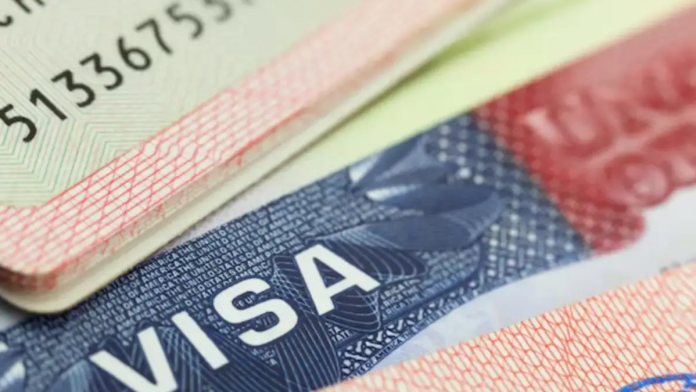The United States has taken a major step by imposing visa sanctions on officials from the Palestinian Authority (PA) and members of the Palestine Liberation Organization (PLO). The move comes at a time when international opinions are sharply divided over the path to peace in the Middle East, especially as the war in Gaza continues to cause a humanitarian crisis. The decision highlights a growing rift between Washington and some of its key allies, who are now moving toward recognizing Palestinian statehood.
US Targets Palestinian Officials with Strong Sanctions
The U.S. State Department announced that selected Palestinian Authority and PLO officials would no longer be allowed to travel to the United States. The department, under Secretary Antony Blinken, said these individuals were undermining peace efforts and not honoring their commitments.
The decision is part of a routine report that is submitted to Congress every six months. While the names of the sanctioned individuals have not been made public, the statement makes clear that the U.S. sees the actions of the PA and PLO—such as turning to the International Criminal Court and backing what it described as terrorism—as damaging to peace negotiations.
State Department deputy spokesperson Tommy Pigott noted that while the U.S. is generally required to allow foreign diplomats access to the United Nations in New York, exceptions can be made for reasons of national security or foreign policy. He added that visa waivers could be granted on a case-by-case basis if deemed necessary.
Trump Targets Brazil With 50% Tariff, Sanctions Top Judge in Bolsonaro Trial
This move also appears to distance Washington from ongoing international efforts toward Palestinian recognition. It comes as the Gaza war, which began in October 2023, continues with severe consequences for civilians. The United States has reaffirmed its stance: holding Palestinian groups accountable is in its national interest.
Global Allies Show a Different Approach
While the U.S. is clamping down on Palestinian leaders, other powerful countries are heading in another direction. Canada, France, and the United Kingdom have each announced that they plan to recognize the State of Palestine, possibly as soon as the United Nations General Assembly meeting in September.
Canada made its intentions clear on Wednesday, stating it would support Palestinian recognition at the UN. France confirmed its position last week, and the UK followed with a statement that it would support recognition if the Gaza conflict is still ongoing by September.
This growing support for Palestinian statehood stands in contrast to the U.S. approach. These moves have been seen as a response to the ongoing humanitarian crisis in Gaza and a way to pressure Israel into reaching a ceasefire or peace deal.
Israeli Foreign Minister Gideon Saar responded strongly. In a statement posted on social media, he thanked the U.S. for what he called “moral clarity” and criticized the European and Canadian moves as supporting a “virtual state” that overlooks the PA and PLO’s alleged ties to terrorism and incitement.
UN Meetings and Ongoing Gaza Conflict Add Pressure
The U.S. sanctions came just after a major international conference hosted by France and Saudi Arabia at the United Nations. The event aimed to promote a two-state solution, offering Israel and Palestine peaceful, independent futures. Notably, both the U.S. and Israel chose not to attend.
Also on Thursday, U.S. special envoy Steve Witkoff met with Israeli Prime Minister Benjamin Netanyahu. Their meeting focused on ongoing ceasefire talks and urgent efforts to deliver humanitarian aid to Gaza, where the situation continues to deteriorate rapidly.
According to Israeli reports, the war began on October 7, 2023, when Hamas-led fighters entered southern Israel, killing around 1,200 people and taking 251 hostages. Since then, Israel’s military campaign in Gaza has killed more than 60,000 people, according to Gaza health officials. Most of the casualties have been civilians, and nearly the entire population has been displaced.
With much of Gaza in ruins and global warnings of famine on the rise, the pressure on international leaders continues to grow. But while some nations lean toward recognition and diplomacy, the U.S. has chosen a different route—sanctions, accountability, and a firm stance on national security.


